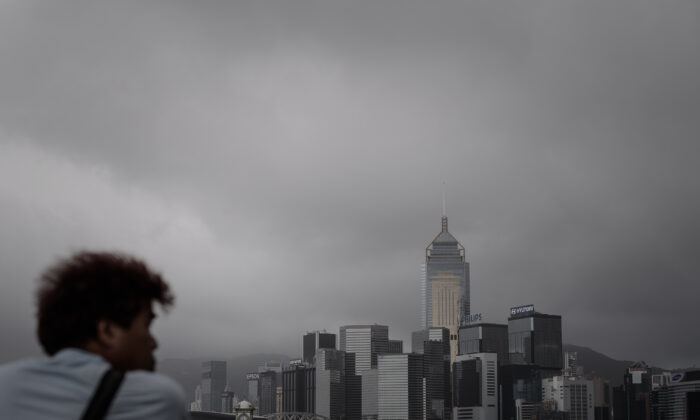Commentary
I departed from Hong Kong on June 28, 2021, due to the unbearable political situation. The once upheld “one country, two systems” principle that guaranteed a certain way of life for Hongkongers has disappeared. It has been three years since this significant life change occurred, marked by the totalitarian regime’s crackdown on those advocating for democracy and free speech. The political landscape in the once-renowned city, especially with the implementation of the National Security Law and Article 23 of the Basic Law, has created a complex and uncertain environment for businesses.
As a proud Hongkonger and Canadian citizen, the idea of Hong Kong being considered an “unsafe” destination was unimaginable. Transitioning from a hedge fund manager in Hong Kong to an “accidental activist” advocating for freedom through various media platforms has been a challenging adjustment. The question arises: Who still wants to hear the “Hong Kong Story” and witness its transformation from greatness to unrecognizability?
Currently in Grand Rapids, Michigan, USA, concluding a conference organized by the Acton Institute, I had the honor of engaging with Father Robert Sirico, the institute’s co-founder. Father Sirico, a supporter of the free market and a close friend of Jimmy Lai, the founder of Apple Daily in Hong Kong, has witnessed the unjust trials against Lai in Hong Kong. The conference focused on the intersection of religion and liberty, and I encourage those interested to visit their website (www.acton.org) for more information.
Reflecting on the social movement of 2019 in Hong Kong, it is evident that many have moved on, but Hong Kong’s essence is not forgotten. However, its identity is evolving rapidly, mirroring the fate of Tibet after its annexation by the Chinese Communist Party. Residents in these “Special Economic Regions” are under strict surveillance, facing harsh penalties for breaching the imposed laws. Hongkongers advocating for freedoms are experiencing “protest fatigue,” with most national security trials nearing conclusion, except for “The Alliance,” responsible for organizing the Tiananmen massacre candlelight vigil.
After three years away from Hong Kong, I have come to terms with the idea that not returning is acceptable. We can preserve the spirit of Hong Kong globally by sharing its true narrative. It is crucial to recognize the severity of the CCP’s actions, particularly the flawed national security trials lacking due process, defense, or jury. When individual rights are eroded, as seen in Hong Kong, those with the means should consider leaving.
It is disheartening to witness the swift erosion of Hong Kong’s autonomy. Over the past three years, I have traversed thousands of miles in Canada and the U.S., sharing the Hong Kong narrative and instilling hope in those concerned about the city’s decline as an international financial hub. By recounting the stories of figures like Jimmy Lai, law professor Benny Tai, and activist Joshua Wong, I have found a sense of redemption. Taking an active role in advocating for Hong Kong, I believe that as a man of faith, passivity in the face of injustice is not an option. We must act with compassion and courage, especially during Hong Kong’s current “dark ages.”
Looking back a decade, I recall spearheading an initiative titled “Ten Requests to the Communist Party of China from the People in Hong Kong (Finance and Banking Sector).” We had hoped to appeal to President Xi Jinping for reforms that would bring China closer to democracy. Sadly, none of our ten requests were met, underscoring the need to safeguard the rule of law and judicial independence in Hong Kong.
The rule of law is a fundamental value in Hong Kong, essential for its prosperity. Upholding the separation of powers—executive, legislative, and judiciary—ensures impartial court rulings based on legal principles, free from political influence. The government’s interference with the judiciary is prohibited, allowing for accountability and justice. This system is vital for Hong Kong’s status as a global metropolis and the successful implementation of “one country, two systems.”
Recent developments advocating for power coordination rather than separation in Hong Kong have raised concerns about the erosion of the rule of law. We urge Chinese leaders to honor the commitment to preserving the separation of powers in Hong Kong, as it is integral to the city’s identity and future.
The assault on the rule of law and judicial independence in Hong Kong has led to capital flight and heightened fears about the city’s autonomy. The CCP’s actions make it clear that they are asserting control over Hong Kong, threatening its cherished values and international standing.
I end today’s writing with a solemn declaration: the CCP and Hong Kong’s leaders have not only betrayed the city and its people but have also cast a dark shadow over its future.
Edward Chin (錢志健) runs a family office. He was formerly the Country Head of a publicly listed hedge fund in the UK, the largest of its kind measured by assets under management. Outside the hedge funds space, Chin is the Convenor of the 2047 Hong Kong Monitor and a Senior Advisor of Reporters Without Borders (RSF, HK & Macau). Chin studied speech communication at the University of Minnesota and received his MBA from the University of Toronto.
Views expressed in this article are opinions of the author and do not necessarily reflect the views of The Epoch Times.
Source link





